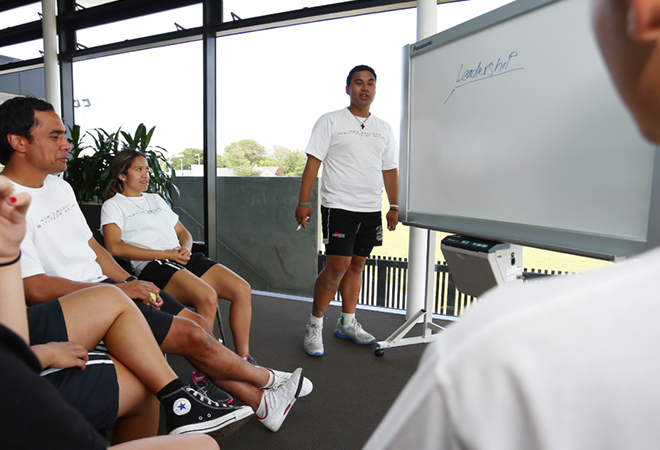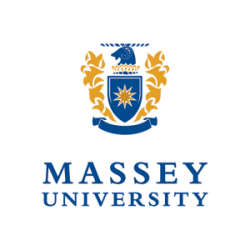
Internships: More than enhancing graduate attributes and employability
Status
Completed: 7 July 2018
Project Details
A one-year project, undertaken by Massey University, to examine and analyse students’ reflections based on their main activities, learning outcomes and overall experiences within a sport management and coaching Work Integrated Learning (WIL) framework at Massey University.
Aims:
The key aims of the project were to:
- understand student’s perceptions, which will help to inform and change teaching practice through increased focus on specific graduate attributes and a broader range of added value aspects of Work Integrated Learning (WIL) programmes
- examine the extent to which students’ perceptions of the activities involved in the sport management and coaching practicum align with the development of T-Graduates through WIL experiences
- examine the extent to which students’ views of the learning outcomes derived from the sport management and coaching practicum align with Massey’s stated graduate attributes
- enhance the engagement of WIL students and facilitation of educators to influence critical aspects of the learning outcomes by examining students’ reflections of their Sport Management and Coaching practicum.
Methodology:
The project used a case study methodology which involved a historical document analysis of student reflections, post the sport management and coaching practicum, on their key tasks, learning outcomes and overall experience over a 10-year period from 2007 to 2016.
Team

Andy Martin
Project Leader
Massey University
Malcolm Rees
Massey UniversityStatus
Funding
$30,000.00 (excl GST)
Key Findings
The key findings from the project included:
- Work Integrated Learning (WIL) has attracted considerable attention as an instrument for enhancing professional practice and developing work-readiness in graduates. It is widely considered as a point of difference in developing graduate employability by enhancing skill outcomes through an authentic learning experience. These findings reinforce the importance of a learning process that facilitates leadership and reflective work-based experiences that integrate theory and practice.
- The breadth and depth of WIL activity reinforced the notion of developing ‘T-shaped professionals’, who are characterised by their deep disciplinary knowledge in at least one area (e.g. event management), and their ability to function as ‘adaptive innovators’ across boundaries between disciplines (e.g. various business activities). The WIL experience provides an ideal environment for encouraging the individual student to develop analytical, systems and critical thinking, and a problem-solving mind-set/approach.
- This report also focuses on aspects of added value of WIL and the development of personal and professional graduate attributes. The findings show that the WIL experience reinforced employment decisions and was enjoyed by students. Gratitude for the support and mentoring of workplace and academic supervisors was evident.
- Development of self-efficacy, personal attributes involving self-management (self-awareness, self-confidence, time management) and effective communication (particularly oral and digital) were important learning outcomes, along with their development as enterprising individuals. Professional development of a community of practice (networking, increased organisational awareness) and leadership responsibilities were also highlighted.
- Reference to the graduate attribute’s varied greatly both between participants and across themes. While alignment with Massey University’s employability characteristics is evident in the practicum’s WIL environment, it is acknowledged that the dominance of the various graduate attributes is likely to vary between different qualifications.
Key Recommendations
The key recommendations, insights and implications from the project include:
Variety of learning experiences | The breadthand depthof WIL activity ‘future proofs’ graduates in developing ‘T-shaped professionals’. It is important that WIL opportunities provide a variety of such learning experiences.
Developing reflective practitioners | The development of graduates as reflective practitionersis enhanced through the WIL process that requires analytical, systems and critical thinking to solve problems. The reflective WIL process also enhances self-efficacyand boundary spanning competencies such as teamwork, communication, organisational perspective and networks.
Key graduate attributes | The key graduate attributes of self-management, enterprising individuals, a community of practice, effective communication, and leadership responsibilitieswhen melded together define an optimal WIL outcome through the tripartite partnership between the employer, the supervisor, and the student.
Reflecting on leadership | The importance of teamwork, students being given responsibility, and collaborative learning have previously been highlighted as the most important factors graduate reported for effective WIL outcomes. However, these current findings, whilst noting the responsibility of their roles, indicate that the students have not reflected specifically on the leadership aspects. Presumably reflecting on leadership was a challenge. Greater facilitation by educators/supervisors could enhance this connection and learning outcome. Students clearly need more exposure to the various attributes or activities that underpin leadership.
Critical reflection | Critical reflection does not come easy to some people and the findings reinforce the importance of a learning process that facilitates leadership and reflective work-based experiences that link theory to practice. It was a credit to some that they were able to reflect in this way as they looked back on their placement experience. Like leadership, critical reflection is one of those characteristics that could be improved on.
Application to other fields and disciplines | The findings reinforce the importance of a learning process that facilitates leadership and reflective work-based experiences that integrate theory and practice. The findings could be transferred and applied to other fields and disciplines. In particular, it is hoped that tertiary providers may be encouraged to consider WIL as an option for enhancing student learning.
A research report prepared by Andy Martin and Malcom Rees.
(PDF, 900 KB, 70-pages).
- 23 January 2018
A research report prepared by Andy Martin and Malcom Rees.
(PDF, 1.5 MB, 21-pages).
- 23 January 2018